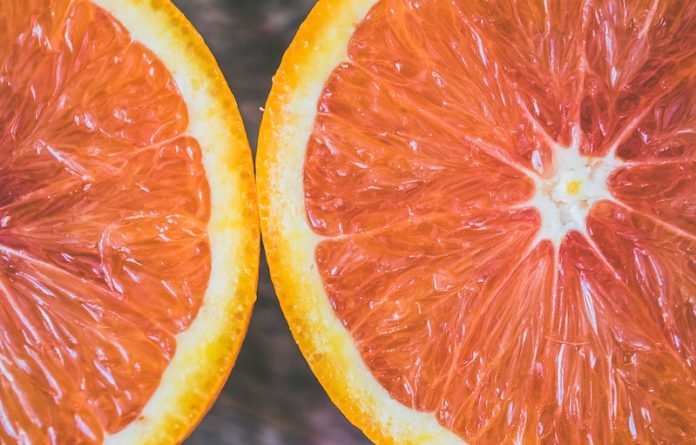
A new study by scientists from King’s College London has found that grapefruit juice could enhance the blood pressure-lowering effect of beetroot juice.
Beets are rich in folate, which plays a key role in controlling damage to blood vessels and reducing the risk of heart disease and stroke.
They are also naturally high in nitrates, which help relax and widen blood vessels, thus lowering blood pressure. Previous studies have found that dietary nitrate from beetroot juice lowers blood pressure.
Grapefruit is a low-calorie fruit that is rich in nutrients, such as vitamins A and C. It is also low on the glycemic index, meaning it provides nutrients without significantly impacting a person’s blood sugar levels.
The combination of fiber, potassium, lycopene, vitamin C, and choline in grapefruit could all contribute to heart health.
In this study, researchers aimed to see if grapefruit juice would enhance blood-pressure-lowering with beetroot juice by maintaining circulating nitrite.
Previous research had found that grapefruit juice appears to have inhibited the metabolic conversion of nitrate to nitrite.
The team tested 11 healthy volunteers who received a 70-mL shot of active beetroot juice (Beet-It) and 250 mL grapefruit juice, active beetroot juice with 250 mL water, or placebo with no beetroot juice and grapefruit juice.
The researchers found that the addition of grapefruit juice to active beetroot juice lowered systolic blood pressure and pulse pressure compared with beetroot juice plus water.
Blood pressure is measured using two numbers: systolic blood pressure, which measures the pressure in your arteries when your heart beats, and diastolic blood pressure, which measures the pressure in your arteries when your heart rests between beats.
The top number (systolic) minus the bottom number (diastolic) is the pulse pressure.
The team found that five hours after drinking beetroot juice and grapefruit juice, participants’ systolic blood pressure decreased by 3.3 mmHg.
Two and a half hours after drinking beetroot juice and grapefruit juice, participants’ systolic blood pressure decreased by 4.2 mmHg.
The team concluded that grapefruit juice enhanced beetroot juice’s effect on lowering systolic blood pressure and pulse pressure despite decreasing the nitrite level in the blood.
While the study is limited by its small sample size, it provides promising evidence that grapefruit juice could enhance the benefits of beetroot juice on blood pressure.
However, it is important to note that grapefruit juice can interact with certain medications, so individuals should consult their doctor before consuming large amounts of it.
Diet can play an important role in managing blood pressure, and there are several dietary changes that people can make to help lower their blood pressure. Here are some dietary tips that can help lower blood pressure:
Increase consumption of fruits and vegetables: Fruits and vegetables are rich in nutrients, fiber, and antioxidants, which can help to lower blood pressure. Aim for at least five servings of fruits and vegetables per day.
Reduce salt intake: Consuming too much salt can increase blood pressure. It is recommended to limit salt intake to no more than 2,300 milligrams per day.
Some ways to reduce salt intake include avoiding processed foods, using herbs and spices to flavor food instead of salt, and limiting the use of table salt.
Eat whole grains: Whole grains are rich in fiber, which can help to lower blood pressure. Some examples of whole grains include brown rice, quinoa, whole wheat bread, and oatmeal.
Include lean protein sources: Choose lean protein sources, such as chicken, fish, beans, and lentils, instead of red meat.
Consider the DASH diet: The DASH (Dietary Approaches to Stop Hypertension) diet is a well-known eating plan that has been shown to lower blood pressure.
It emphasizes fruits, vegetables, whole grains, lean protein sources, and low-fat dairy products, while limiting salt, saturated and trans fats, and added sugars.
If you care about blood pressure, please read studies about Blackcurrants could improve artery functions, blood pressure in older people and findings of Early time-restricted eating could help lose weight and improve blood pressure.
For more information about heart health, please see recent studies about Zinc linked to lower death risk in heart disease, and results showing intensive blood pressure control can lower risk of heart muscle damage.
The research is published in the British Journal of Clinical Pharmacology and was conducted by Kevin O’Gallagher et al.
Copyright © 2023 Knowridge Science Report. All rights reserved.



